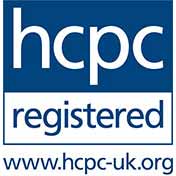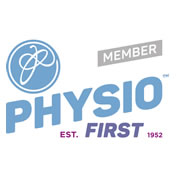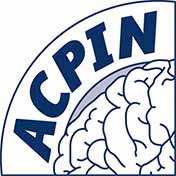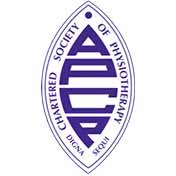Traumatic Brain Injuries (TBI) can be devastating for both the individual and their family, and can be a life changing event.
TBI may be the result of sustaining a blow or insult to the head, for example during a car accident, a bullet or other foreign object penetrating the skull and lodging in the brain matter or, from a simple fall where the individual bangs their head on the ground. The consequences can be immediate, with symptoms occurring within seconds of the injury, or they may slowly develop over a period of days or weeks as blood leaks from the damaged brain area causing the brain to swell slowly against the skull.
The effects of a Traumatic Brain Injury can vary hugely, depending upon the type of the injury sustained and the medical attention received immediately after the injury.
Physical problems may include hearing loss, tinnitus (ringing or buzzing in the ears), headaches, seizures, dizziness, nausea, vomiting, blurred vision, decreased smell or taste, speech and language problems, changes to normal bodily functions, reduced strength, altered balance and co-ordination in the body or the arms and legs, sensory loss, chronic pain and altered muscle tone.
Cognition (thinking skills) may be affected following a Traumatic Brain Injury and problems vary depending upon the location and severity of the injury. Such problems may include perceptual difficulties, an altered awareness of one’s surroundings, decreased attention to tasks, problems with memory and reasoning, and difficulty with executive functioning, for example goal-setting, planning tasks and events, initiating actions from thought, self-monitoring and evaluation of tasks and actions.
Communication may be affected, again depending upon the location of the brain injury. In such cases, the ability to express ideas through speech or writing, social communication such as tone of voice, appropriate response to conversation or commands, understanding how to take turns to talk, and appropriate response to facial and body expressions during a conversation with someone may be altered. During conversation, an affected individual may appear to display a lack of emotion or conversely may over-react inappropriately to a simple comment. Such effects can be extremely frustrating, not only for the individual concerned but also their family and friends. It is difficult when you are not used to an altered personality in someone that you know well, and you may not know how to respond to such emotions.
 Physiotherapy input: Physiotherapy rehabilitation is vital following a Traumatic Brain Injury in order to achieve the maximum potential recovery. The plastic ability of the brain and nervous system (in other words its ‘neuroplasticity’), enables modifications to take place within the injured brain cells, in response to stimuli and therapeutic information from the outside. This means that ‘re-programming’ of nerve pathways and brain activity, through the correct therapy input can help an individual to re-learn skills, movements and functions by opening and optimising new pathways within the nervous system. Neuro-physiotherapy is therefore directed at providing the most appropriate stimuli at the most appropriate time, in order to harness the neuroplastic ability of the brain. Ideally this occurs at the earliest stage following an injury.
Physiotherapy input: Physiotherapy rehabilitation is vital following a Traumatic Brain Injury in order to achieve the maximum potential recovery. The plastic ability of the brain and nervous system (in other words its ‘neuroplasticity’), enables modifications to take place within the injured brain cells, in response to stimuli and therapeutic information from the outside. This means that ‘re-programming’ of nerve pathways and brain activity, through the correct therapy input can help an individual to re-learn skills, movements and functions by opening and optimising new pathways within the nervous system. Neuro-physiotherapy is therefore directed at providing the most appropriate stimuli at the most appropriate time, in order to harness the neuroplastic ability of the brain. Ideally this occurs at the earliest stage following an injury.
Rehabilitation following TBI is unlike any other field of rehabilitation. The injuries sustained can often be severe and may take longer to recover from than other types of neurological conditions. In addition, the nature of the injury may have caused other physical problems such as fractures and soft tissue damage, to occur alongside the brain injury. Improvements are often rapid during the immediate few weeks post-injury, followed by a slower period of recovery over the coming months into years. Although the majority of a person’s recovery is achieved within the first 12 months post-injury, there is evidence to show that improvements can continue, given the appropriate therapy and rehabilitation, for up to 10 years.
Physiotherapy management can help with:
- Restoring muscle strength and joint stability
- Reducing muscle spasms, contractures, stiff joints and associated pain
- Improving balance (in sitting and standing), co-ordination and normal patterns of movement
- Re-education of walking
- Re-training of functional tasks, for example sit-to-standing, turning in bed, activities of daily living
- Reducing the risk of falls
- Restoring independence and quality of life
- Training and teaching of family members / carers involved with the rehabilitation process, for example manual handling, bed / bath / chair / toilet transfers, positioning techniques and exercise programmes to maintain muscle strength, co-ordination and flexibility of soft tissues
At Yorkshire Neuro Physiotherapy, we have a team of highly-experienced and knowledgeable Neuro Physiotherapists who regularly deal with clients who have suffered Traumatic Brain Injuries. We can help you to get back to being as independent as possible by providing you with a physiotherapy management programme designed to suit your individual symptoms and goals.
We can work with you within your home, your care home, alongside your family /carers, or within one of our designated neuro-rehabilitation clinics, depending upon what is considered the most appropriate option for you. We are also happy to liaise with and work alongside Solicitors, Insurers and Case Managers should they be involved in the process, and we can produce detailed physiotherapy reports to support your case if required.
For further information, or to speak with one of the team, please get in touch.





